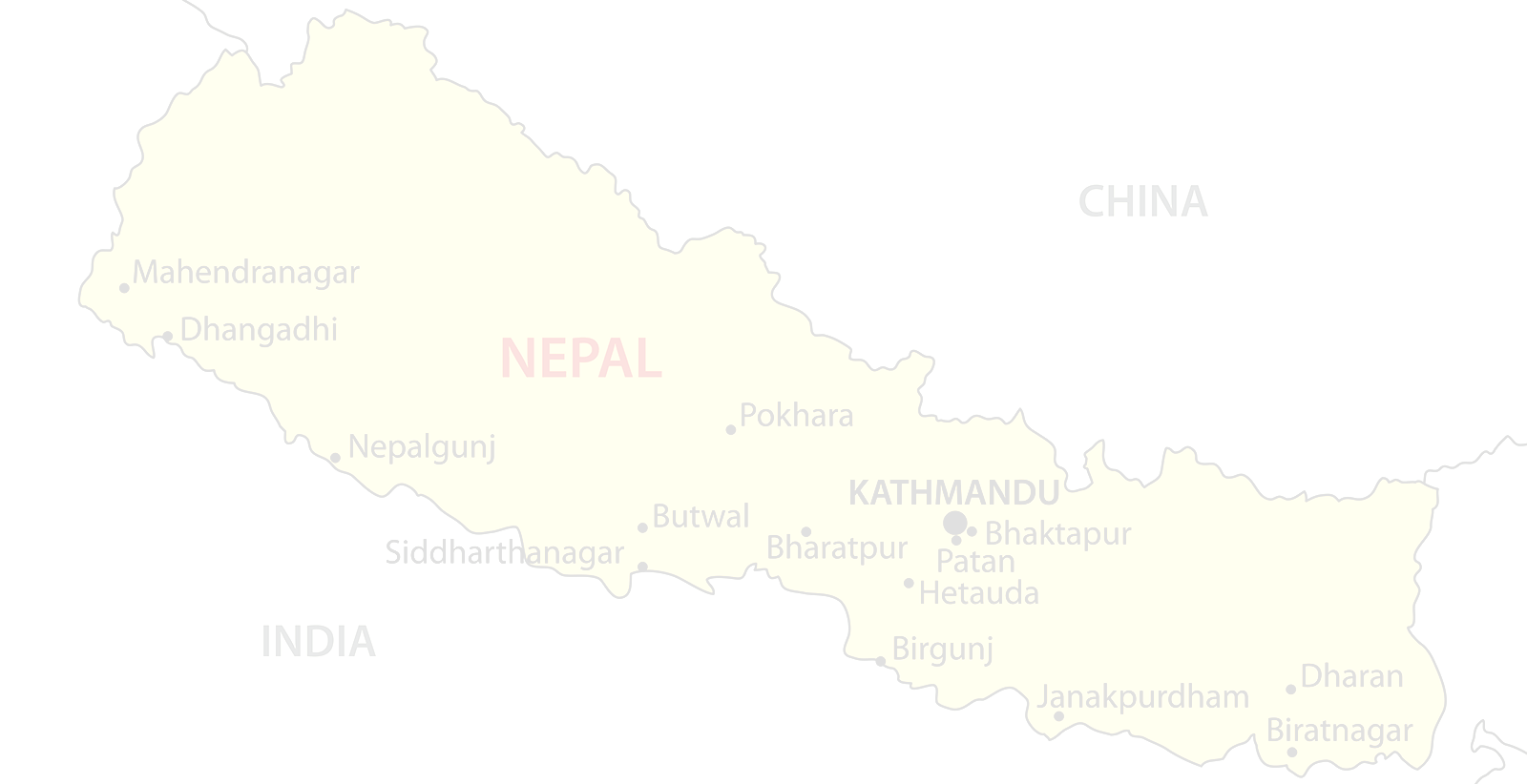

We work in 5 year increments, blocks - if you will. This is stipulated by the Social Welfare Council (SWC), which is part of the Ministry of Women, Children and Senior Citizens in Nepal. The SWC monitors the projects through field visits and analysis of reports. The current block runs from 2023 to 2028. We are thus currently working hard on the projects we want to realise in the coming years. Here are some of these programmes:
Humla, located in the far north-west of Nepal, is one of 75 districts with Simikot as its capital. It is a remote district close to the border with Tibet and its population is very poor. Its location makes it difficult to get around. We already built several schools there and now 16 are on the list to be rebuilt or renovated. Thanks in part to this project, it is made possible for the children from Humla to get an education. This increases their chances for the future.
It involves 120 schools and exporting knowledge to other regions. In Nepal, there is a taboo regarding the menstrual cycle. As a result, Girls attend school one week less per month. This project provides education to girls, boys and their parents. We also build separate toilets, provide sanitary pads and special incinerators so that used pads do not end up in the environment. Some 10,000 girls benefit from this programme. By providing proper hygiene measures and education about menstruation, we create more equal opportunities for girls in education and thus their future.
Following the “100% Girls to school” initiative, we started programmes on preventive dental care, hearing check-ups and eye care. This in cooperation with Stichting Medora and Stichting Kind en Oor. In this region, we are also starting a programme for the further training of medical specialists and are working on the construction of a centre for technical education. Finally, the purchase of a school bus is on the agenda.
This programme will start in the Chitwan region at the request of the Nepalese government.Chitwan, known for its National Park, is located in the southern lowlands of Nepal. Several projects have been completed in both regions, including schools, orphanages and health centres. Building is one thing, but continuity is a constant challenge. By keeping a close eye on these projects, we ensure that the people and children in this region can continue to benefit from good education and adequate healthcare.
Schools, built with our support, do not get the teachers and learning materials needed immediately. The government often waits several years and then cautiously starts co-financing. To make a school a success, our foundation provides a good start. There are currently eight schools we support in this way. Until these schools are fully taken over by the government, we take care of paying or co-paying the teachers' salaries. Over 400 children received a full scholarship. These are children from underprivileged situations. Together with the school and the community, these children are selected and accompanied. In addition, over the years there are thousands of children who use the schools and receive a small financial aid here and there. We support parents who cannot pay the school fees so that their children have access to a good education.
Children often find themselves trapped in difficult situations when parents die, divorce or lose their jobs. If there is no close family, we take these children in. We provide schooling, sometimes with boarding school or shelter. The child's future comes first. Therefore, we also pay attention to counselling the parents, where possible.
Pokhara, Nepal's second largest city in the Kaski district, is home to a special initiative. Parents of children with autism have come together to make help and counselling possible. It has been a success. Success in this case also means growth in the number of applications. The current location is no longer adequate. With the support of Foundation Nepal, a new and larger centre is now being built. We also support the running of the centre. This way, we ensure that people with the right knowledge are employed there.
As many areas in Nepal are very remote, it is often difficult to get proper healthcare. Therefore, we have built health posts in several regions, here and there even a complete clinic. Humla has several mother-child clinics and Chitwan has special dental and ENT care. At the moment, a multi-year outreach programme for very remote areas is being worked on, where health workers and doctors take turns to visit with medicines, among other things. An exchange programme with Dutch doctors is now in the pipeline. Are you a doctor and would you like to know more about this? Then get in touch with us!
In Rolwaling, women and girls are being trained to run their own businesses. Think tea houses, hostels and restaurants. The region is developing, and the number of tourists is increasing. This gives opportunities for economic independence. The men from the region often accompany expeditions to the peaks of the Himalayas and so the women are left to fend for themselves. Through a special agricultural project in greenhouses, crops are grown that benefit both locals and guests in the teahouses and hotels.
In Kaski, we have started a Social Service. In consultation with local authorities, our local partner selects families where help is needed. This might include education, including for adults, guidance in setting up a business or improving agriculture. In this way, we guide the people where necessary so that they become self-reliant. And thus, increase not only their own but also their children's future prospects.